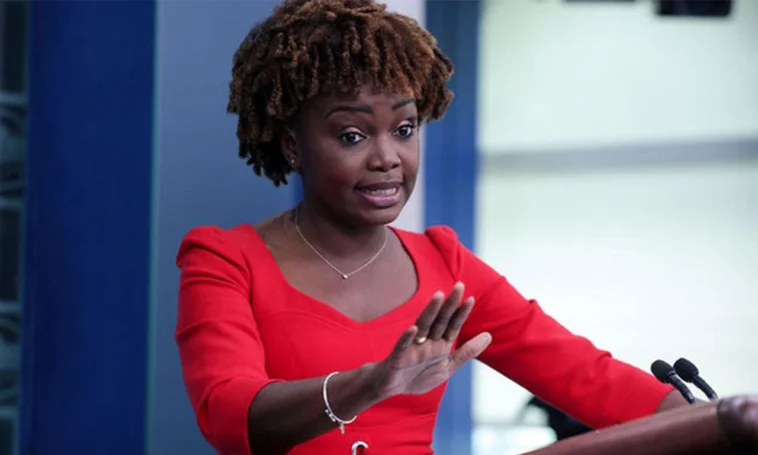Radio host baffled by Karine Jean-Pierre’s sudden interview termination: ‘surprised at the fragility’. The recent interview between Karine Jean-Pierre, the White House press secretary, and Mark Garrison of 99.3 WBT Charlotte has sparked significant attention and debate. The exchange highlighted tensions surrounding questions about President Biden’s leadership, the administration’s policies, and the conduct of media interactions.
Garrison’s inquiry into whether President Biden has “dementia” was met with swift rebuke from Jean-Pierre, who labeled the question as “incredibly offensive.” This reaction underscores the sensitivity surrounding discussions about a leader’s cognitive abilities, particularly in the context of political discourse. Questions regarding a president’s mental fitness have been raised throughout history, but they carry added weight in today’s hyper-partisan environment.
Jean-Pierre’s decision to end the interview after this line of questioning reflects the challenges faced by White House officials in navigating media engagements. While press secretaries are expected to field tough questions, they also have the discretion to determine which inquiries they deem appropriate or respectful. In this case, Jean-Pierre opted to disengage rather than entertain what she perceived as a disrespectful line of questioning.
Garrison’s subsequent inquiry about rising gas and grocery prices shifted the discussion to another pressing issue facing the Biden administration. Here, Jean-Pierre sought to contextualize the administration’s response, citing President Biden’s upbringing in a middle-class family and attributing economic challenges to multiple crises inherited from the previous administration.
“How does Mr. Biden win votes when people don’t have as much disposable income?” Garrison asked.
Her emphasis on Biden’s personal background and the external factors influencing economic conditions reflects a common strategy used by administrations to humanize policy decisions and deflect blame for economic hardships.
However, Jean-Pierre’s characterization of the administration’s handling of gas prices as successful may be subject to scrutiny. While it is true that global events, such as Russia’s invasion of Ukraine, have contributed to fluctuations in gas prices, the extent to which the Biden administration’s actions have mitigated these effects is a matter of debate. Critics may argue that the administration’s energy policies and regulatory decisions have had limited impact on consumer costs, leading to skepticism about Jean-Pierre’s assertions.
The abrupt conclusion of the interview left both parties with unresolved questions and lingering tensions. Garrison expressed surprise and disappointment at the premature end of the conversation, lamenting the missed opportunity to address additional topics. His reaction underscores the frustration experienced by journalists when faced with limited access to high-ranking officials and the challenges of holding those in power to account.
In response to criticism of Jean-Pierre’s handling of the interview, the White House offered an explanation, citing scheduling constraints and the need to accommodate multiple media engagements. According to White House deputy press secretary Andrew Bates, Jean-Pierre had back-to-back interviews with radio stations, each allotted seven minutes. Once the agreed-upon time had elapsed, she moved on to the next interview to ensure that all stations received their full allocation.
However, skepticism remains regarding the White House’s explanation, particularly regarding claims that artificial sound effects were added to the interview. Critics have questioned the veracity of this assertion, suggesting that it may be an attempt to deflect attention from the contentious nature of the exchange. The controversy surrounding the interview highlights broader concerns about media transparency, accountability, and the evolving dynamics between government officials and the press.




One Comment
Leave a ReplyOne Ping
Pingback:Karine Jean Pierre Accuses Right-Wing of Misinformation Regarding 'Trans Day of Visibility' - Hard Knock News
Join the Community and Be a Part of the Conversation
You must be logged in or registered to post a comment.